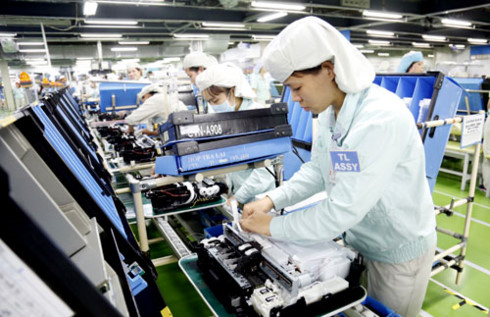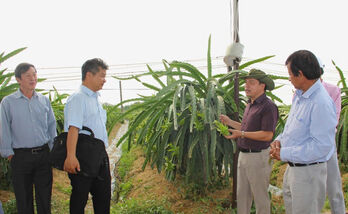
At the recent Vietnam International Economic Integration Forum 2017 on the theme ‘Reinforcing momentum for a new development phase’, Dr Nguyen Dinh Cung, Head of the Central Institute for Economic Management (CIEM) attributed domestic businesses’ limited capacity to move up the global supply chain to a lack of long-term strategies for human resources development, unplanned application of advanced technologies in production line modernisation, and ineffective ways in building trust among customers and partners.
Most small businesses are working with obsolete business methods and have not done the necessary groundwork to benefit from the opportunities offered by Free Trade Agreements (FTAs). Businesses lack both the knowledge and plans of implementation required for international economic integration, Mr Cung emphasized.
The representative from CIEM brought attention to worrying statistics that indicates 63% of local businesses are not equipped for international integration and only 0.001% has been adequately prepared for the process.
Therefore, it is imperative to work out strategies for better institutional reforms and a supportive low cost business environment. The fact is that the current institutional hurdles are preventing businesses from capitalizing on the opportunities for economic international integration but they are giving better opportunities for foreign businesses, Cung noted.
Mr Cung highlighted the importance of stepping up institutional reforms, improving the investment environment, alter the conduct of civil servants, and provide better insights into businesses’ internal problems so that businesses achieve steady growth as a contribution to the country’s further success in the coming years.
Le Tien Truong, general director of the Vietnam National Textile and Garment Group (Vinatex), and also Vice Chairman of the Vietnam Textile and Apparel Association (Vitas), said that in the10 years of membership of the World Trade Organization (WTO), the textile and garment sector has taken full advantage of the benefits presented in FTAs to lift its export turnover toUS$31 billion. and has managed to conquer major markets such as the US, Japan, and the Republic of Korea.
e noted that in the context of Vietnam’s participation in international integration, the clothing industry hopes that the Government concentrate efforts to hasten new-generation FTAs, consult with businesses throughout negotiations, and facilitate payment systems. Meanwhile, businesses need to improve their market research capacity and better exploit FTAs.
From the perspective of an investor, Ms Dang Thi Minh Loan, deputy managing director of Vinacapital, local businesses now face major challenges such as the limited scale of investment, and market and customer network, low production capability, and a lack of leadership personnel.
Many Vietnamese businesses have partnered with foreign businesses to develop (mergers and acquisitions) M&A capability as this is one of the most effective and fastest ways to expand their scale of operations.
Regarding the positive impacts of the Vietnam-EU FTA, Gellert Horvath, co-chairman of Eurocham said staple exports items to the EU such as coffee, clothes, leather, and footwear will see an increase of 30-40% in the coming years thanks to FTAs, adding that the country should boost exports of other goods such as tea and bamboo products.
EuroCham has received a slew of requests from Vietnamese businesses looking for help to introduce their products to the EU, he said while underscoring the importance of ensuring food safety and hygiene standards to meet the strict requirements set by the EU.
Vietnam’s efforts to improve the investment climate, revamp the legal system and ensure the quality of agricultural products will help the country grow into one of the world’s leading nations in agricultural production, he added.
VOV
 Collective economy—a sustainable direction to escape poverty
Collective economy—a sustainable direction to escape poverty



